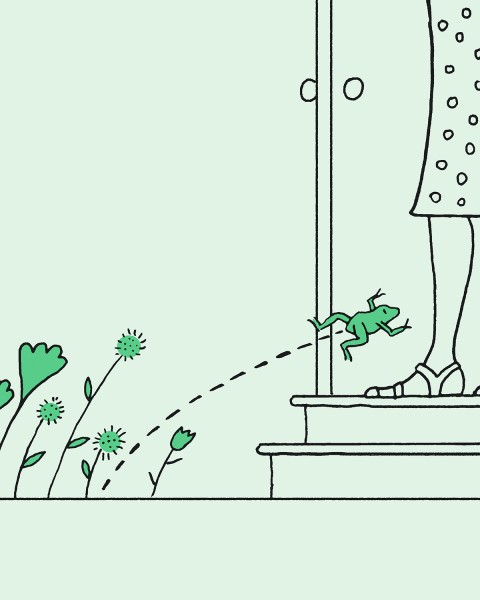Small creatures
“There’s a frog in our house!” My daughter and I said the words together, but only one of us was excited.

(Illustration by Nicholas Blechman)
We had planted flowers in our tiny garden to attract hummingbirds. After a long summer rain, my young daughter and I stepped outside onto the porch to see if our well-watered plants had finally yielded any visitors. No sooner had we opened the door than a frog hopped into our house. A few hops to the right, and he settled on the area rug of my home office.
The unexpected appearance of a frog on my porch and then in my home left me speechless. I am a city girl. In my mind, frogs existed in places like rainforests or in fictional settings like the bedtime stories I read to my daughter at night. I had no real-life experience with actual frogs. I had no clue how quickly they moved. And I certainly could not have imagined one taking up residence in my house. As the parent, the adult in charge, I knew I needed a plan to rid our house of this uninvited visitor. I grabbed my daughter by the hand and we fled to our next-door neighbors, leaving the frog to whatever destruction I imagined he planned to wreak in our home.
We could not have asked for better neighbors. A Presbyterian pastor, her husband, and their young daughter had welcomed us into the neighborhood years earlier and remained the kind of dependable neighbors you knew you could turn to in a crisis. As they opened their front door to our unexpected visit, my daughter and I almost simultaneously cried out: “There’s a frog in our house!” before we even said hello. I’m sure there is no course in divinity school that had prepared my theologically trained neighbor to offer a pastoral response to a wildlife crisis in a neighbor’s home.




